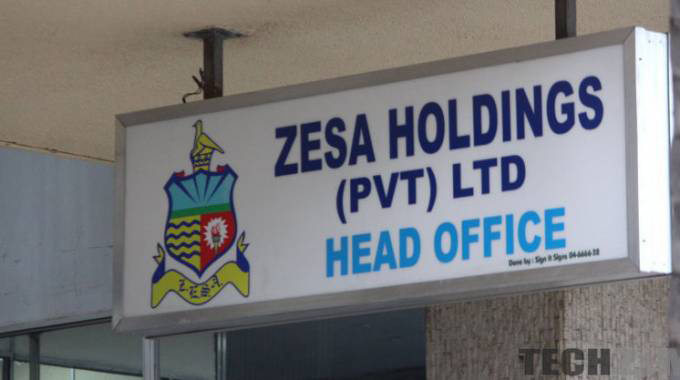Editorial Comment: Zesa needs to get all its money in advance

It is almost impossible to believe that Zesa has allowed customers, its larger customers, to build up debts of $15 billion, and has done little or nothing to recover these huge debts some of which must date back many months.
This is also grossly unfair. Most households and small business do not have any leeway whatsoever. They were converted to prepaid energy meters some years ago and have to pay in advance or sit in the dark.
Zesa does have a slightly complex tariff arrangement for this large group, a majority of its customers, who get cheaper electricity for the first 300 kilowatt hours a month and more expensive electricity when they go over that figure, a factor that helps Zesa as well as the customers by encouraging people to be careful how they use electricity.
In any case, when the Zimbabwe Energy Regulatory Authority pressed for and approved this tariff arrangement, sums were done and Zesa still gets an average that equates to the standard tariff. The owner of a mansion with 10 bathrooms and 10 geysers is helping to ensure that the householders in a few dozen cottages without any geysers can afford to keep the lights on and use a hotplate.
But so far as Zesa is concerned this group cannot have a debt, and in fact the advance payments help give Zesa a pool of working capital from electricity that has been paid for but not yet delivered. Rather than anyone in this group owing Zesa any money, Zesa owes just about everyone with a prepaid meter.
Admittedly by the time these meters were finally rolled out a lot of that admin work was not being done with “estimates” dominating the monthly bills. But everything was automatically sorted out as the new meters were installed, since a final reading was taken, the debt recorded and a system put in place that saw in the early years a slice taken off every token purchase to liquidate the debts. So we all paid.
The switch to prepaid meters for households and smaller shops allowed Zesa to withdraw and redeploy a lot a of staff, the people who used to have to go house to house reading meters, entering data, preparing monthly accounts, then cutting off supplies to those who forgot to pay and then finally restoring supplies.
At the time it was said that by moving all the smaller consumers into the prepaid system, Zesa would be able to deploy the required staff to read the meters of the big consumers and do all the clerical and enforcement work. But even that approach, fine a century ago but now way out of date for the third decade of the 21st century, was just a stopgap while modern technology was put into operation.
Technology has existed for some time for a similar arrangement that can ensure prepayment and automatic cut-off for larger consumers, even those who pay on more complicated tariffs that include, or are entirely based on, their maximum demand during a month.
These larger consumers are the bigger businesses and the institutional consumers. Their meters have to be more complex than the simple energy meters for households, and cost more, but obviously the savings generated will give a rapid pay back time.
The smart meters that are needed to cope with the larger consumers should have been fitted some years ago. A set of criminal and civil cases has bogged down the provision and commissioning of these meters and now, finally, acting Minister of Energy and Power Development Jenfan Muswere has given Zesa an ultimatum to lay out a programme that will see all these larger consumers on their smart meters by the end of next year.
We suspect the minister will have to keep up relentless pressure if he wants to see this. Zesa has not exactly been racing ahead to implement what everyone else would reckon was ideal.
The debt not only affects Zesa, it also affects the rest of us who pay on time, or who have to pay in advance whether we like it or not. Although inflation rates have been falling, they are still in double figures and by delaying payment for a few months, and some consumers must be delaying a lot longer, the large consumers can pay in inflation devalued dollars.
That means Zesa either cannot afford to provide services of the required standards to the paying customers, or has to charge those who are paying more than should be paying. Either way the fully paid up customers suffer.
And we need to remember that the present load shedding that is required, largely because Zesa has skimped on some maintenance, because it did not have the cash in hand it needed and that was because a group of consumers owed it $15 billion, is designed to keep the larger businesses and institutions operational while letting households carry the burden of the load-shedding. So we have the situation that those who do not pay on time get power while those who pay in advance are cut off for up to 12 hours at a time.
The Government has now told Zesa to start cutting off the non-paying customers. Obviously there will be a few who cannot be cut off, hospitals and water works for example, but most can be cut. In the old days this was pretty much automatic when you missed a payment but some very bad habits crept in under the old dispensation and it seems the new way of living in Zimbabwe still has to be embraced by everyone.
There have been reports that among the bigger debtors, along with many in the private sector, are some Government institutions setting a bad example. Well except for hospitals these could also be cut off unless they pay or enter a very strict payment plan.
But even the dead beats who forget to pay their bills are several steps higher on the ethical ladder than the thieves who have illegal connections and get unlimited unmetered electricity. It is fairly easy to make an illegal connection, so there is need for constant inspections.
New houses are supposed to be inspected before getting any electricity, and that inspection would surely include the meter. Admittedly a whole lot of houses were built on land-baron plots that do not exist in anyone’s records, but safety considerations alone should mean Zesa checks these illegal estates.
And once there is a meter Zesa has records in a database, and can see how much people are buying each month. If a household or small business suddenly stops buying someone can investigate.











Comments